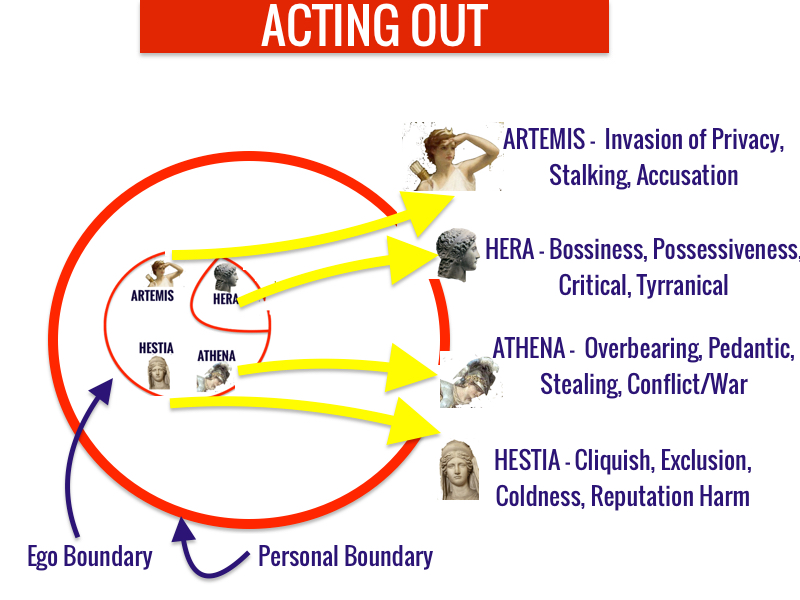Direct expression in action of an unconscious wish, instinct or impulse, without conscious awareness of the emotion underlying the behavior. It is literally letting the instincts run our behavior without filtering or intervention by our boundaries, ethics, or other features of behaving in a socially civilized way, most often caused by a lack of Observing Ego skill.
This is the instinct-driven behavior of teens who are in the midst of angry or confused emotion, and also explains physical behavior, including violence, such as when someone says that they don’t know what overcame them; you just “made them angry.” This kind of automatic, “autopilot” behavior will tend to be directly contradictory to the purposeful and strategic setting of goals in the context of a committed relationship, if it is rampant or pervasive in the person. It won’t matter that the person was not conscious or aware of what they were doing; their actions will defeat the couple’s mission of reaching their goals if you enter a relationship with them.
It is seen in numerous romantic comedies in which things will not work out for a pairing, because one or the other character has done something regrettable, and which lacked Observing Ego, perhaps even something unforgivable. It is the nature of acting out, that one later has regrets about behavior, and any situation in a romance in which someone has later remorse over behavior they’ve done, it is likely acting out that was the defense they were using as a social habit.
If there were a cure for acting out, it would most likely be practice at the skill called, Observing Ego.
One common exercise given in the behavioral health field (and by parents of teens all over the world) is to give a child a “time out.” This simple assignment affords the person a natural window of opportunity for the patient, higher brained sensibilities to “catch up” to one’s rapid, boiling-over instinctual urges.
BACK TO IMMATURE EGO DEFENSES


